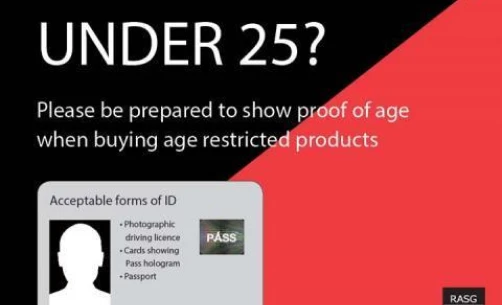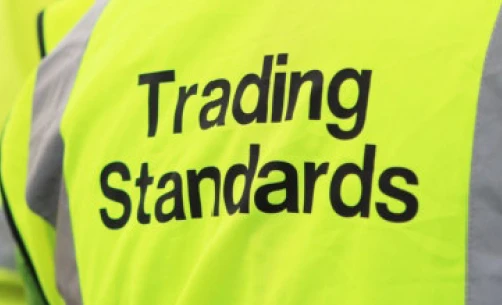Regulation: Our Views
Regulation: We want to be part of the discussion
We recognise and support the objective of governments in reducing smoking rates and the associated health impacts, as well as the role of regulation in achieving these objectives.
We have consistently been clear in our support for tobacco and nicotine regulation that:
- Is based on robust evidence;
- Is tailored to local circumstances;
- Effectively delivers intended policy goals; and
- Avoids unintended consequences, such as the growth of illegal markets.

Smokeless Products provide compelling alternatives for adult smokers
Although not risk-free, Smokeless Products, such as Heated Products, Vapour Products, Oral Tobacco Products and Oral Nicotine Pouches, offer adult consumers the opportunity to consume nicotine with reduced risks compared to cigarette smoking.*†
Evidence from various countries suggests that the introduction of progressive regulation that encourages adult smokers, who would otherwise continue to smoke, to choose Smokeless Products is associated with a decline in smoking rates. For example, smoking rates in Sweden, the UK, New Zealand, and Canada have decreased at faster rates in recent years relative to other countries.[1,2] We believe this has been driven in large part by policies that have enabled adult smokers to access a wide range of smokeless alternatives to cigarettes.
Progressive regulation can drive Tobacco Harm Reduction
Governments, the public health community as well as manufacturers like BAT and their business partners have a key role to play in maximising the potential of Smokeless Products to contribute to Tobacco Harm Reduction. To achieve this objective, these reduced-risk*† products must be supported by progressive regulatory and policy regimes, that among other things, help to establish responsible marketing practices backed by effective enforcement.
"Our experience and expertise means that we have much to offer governments and regulators when it comes to helping develop effective policies around Smokeless Products."
Paul McCrory
Director, Corporate & Regulatory Affairs

Principles to Guide Regulation of Smokeless Products
We believe that four guiding principles should be applied to the development of any regulation of Smokeless Products that acknowledge their lower risk*† compared to cigarettes.

1. Based on science and evidence
Regulation should be based on the best available science and evidence for each product category and be proportionate to the risk profile of the product relative to combustible tobacco.

2. Ensure product quality, environmental sustainability, and consumer relevance
Regulation should mandate robust product quality and safety standards to protect adult consumers and allow access to reduced-risk*† products with satisfying nicotine levels and adult-targeted flavours, and encourage circularity and environmental responsibility among manufacturers, retailers, and adult consumers.

3. Allow adult-only access
Regulation should enable adults to access and gain information about the availability of reduced-risk*† products while preventing use by underage individuals.

4. Enable effective enforcement
Regulation should include an effective regime for penalties, sanctions, and enforcement to drive compliance.
Future Regulatory Framework^
An aspirational 10-point progressive Regulatory Framework for Smokeless Products that reflects these principles
A call for collaborative dialogue
The regulatory landscape is evolving, and we are hopeful that an increasing number of countries will embrace progressive policies and regulations designed to encourage adult smokers to transition to reduced-risk*† alternatives. With the growing body of evidence, we are also hopeful about the broader adoption of these advanced regulations, anticipating a significant decrease in global smoking rates.
At the heart of this evolution is the establishment of a collaborative dialogue that bridges the gap between policy makers, regulators, public health authorities, and the industry. Such a dialogue is crucial for accelerating the momentum towards effective Tobacco Harm Reduction strategies. By fostering mutual understanding, stakeholders can work together to implement regulatory measures that support public health objectives while respecting the choices of adult consumers.

01
Legal access and differentiated regulation
Grant adults legal access to a wide range of smokeless, reduced-risk*† alternatives to cigarettes and apply differentiated regulation.
02
High quality and safety standards
Mandate robust product quality and safety standards to protect adult consumers and enhance circularity of products, specifically through the removability and replaceability of batteries for Smokeless Product devices.
03
Child-resistance and tamper evident
Require manufacturers to ensure that all products are child-resistant and/or tamper-evident, to international standards, to secure product integrity.
04
Nicotine limits
Establish nicotine content ceilings for non-tobacco Smokeless Products while ensuring that nicotine levels remain satisfying for adult smokers.
05
Prohibit underage use
Outlaw the use and sale of nicotine products by and to underage individuals.
06
Age verification
Mandate age-verification mechanisms at the point of purchase or delivery. Regulations should also encourage the integration of underage access prevention features and technologies into the packaging and/or devices.
07
Flavour restrictions
Allow adult-orientated flavours while banning confectionary, candy-like, energy drink, soft drink, and cocktail flavours.
08
Responsible packaging and descriptors
Prohibit packaging designs and descriptors that are predominantly appealing to underage individuals.
09
Adult-targeted communications
Permit communication with adults at adult-targeted touchpoints and ensure they display responsible content, including an adults-only sign and appropriate health warnings.
10
Robust enforcement and sanctions
Provide enforcement authorities with the necessary powers to apply penalties and sanctions to those who fail to comply with regulations, particularly targeting suppliers of non-compliant products and those providing products to underage individuals.
Footnotes
* Based on the weight of evidence and assuming a complete switch from cigarette smoking. These products are not risk free and are addictive.
† Our products as sold in the U.S., including Vuse, Velo, Grizzly, Kodiak, and Camel Snus, are subject to FDA regulation and no reduced-risk claims will be made as to these products without agency clearance.
^ Subject to market realities, including unintended consequences, e.g. illicit trade, and the requirement for strict enforcement to ensure compliance.
References
Sign up for more exclusive the Omni™ content
-
 Smokeless Products: An Introduction
Smokeless Products: An Introduction -
 01. Our Vision: A Need for Reappraisal
01. Our Vision: A Need for Reappraisal -
 02. The Big Questions
02. The Big Questions -
 03. Impact of Smoking
03. Impact of Smoking -
 04. Our Smokeless Science
04. Our Smokeless Science -
 05. Our Smokeless Products
05. Our Smokeless Products -
 06. THR: A Global Transformation
06. THR: A Global Transformation -
 07. THR: Global Regulation
07. THR: Global Regulation -
 08. THR: Scientific Engagement
08. THR: Scientific Engagement -
 09. Our Future Outlook
09. Our Future Outlook -
 10. References
10. References -
 11. Our Published THR Science
11. Our Published THR Science
